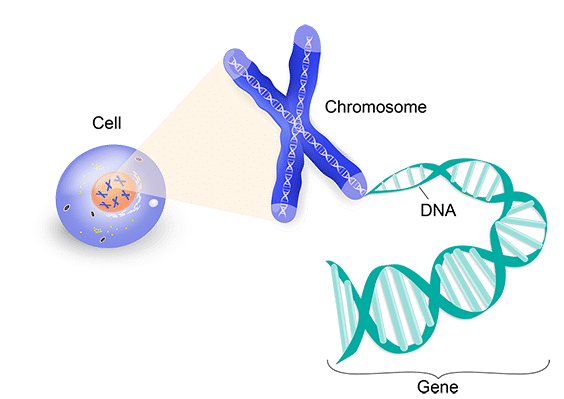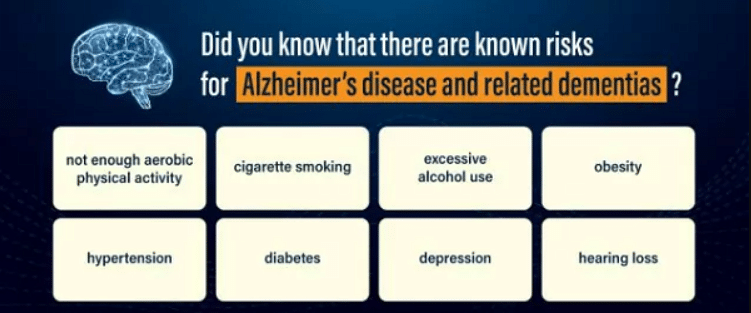Alzheimer’s Disease, a progressive neurodegenerative disorder, remains a major public health challenge due to its complex and multifaceted nature. This post delves into the myriad factors that potentially trigger Alzheimer’s, emphasizing the interplay between genetics, environment, and lifestyle. Understanding these triggers is crucial not only for developing effective treatments but also for identifying preventive strategies. With Alzheimer’s affecting millions worldwide, unraveling these triggers is more than a scientific pursuit; it’s a necessary step toward safeguarding future generations from this debilitating condition.
Contents
- 1 Genetic Factors in Alzheimer’s Disease
- 2 Environmental Influences
- 3 The Role of Lifestyle Choices
- 4 Age and Brain Changes
- 5 The Impact of Chronic Diseases
- 6 Psychological and Social Factors
- 7 Head Injuries and Brain Trauma
- 8 Current Research and Future Directions
- 9 Reflecting on the Journey to Understanding Alzheimer’s Triggers
Genetic Factors in Alzheimer’s Disease

Genetics play a pivotal role in the development of Alzheimer’s Disease, with certain genes significantly increasing the risk. The APOE e4 allele is the most well-known genetic factor, linked to a higher likelihood of the disease, particularly when inherited from both parents. Other genes, like presenilin-1 and presenilin-2, are associated with early-onset Alzheimer’s. However, genetics alone don’t paint the full picture. While familial Alzheimer’s, caused by specific gene mutations, is well-documented, most cases are sporadic, where the genetic contribution is less direct, interacting with other risk factors to influence disease development.
Environmental Influences

The environment we live in can subtly yet significantly impact our risk of developing Alzheimer’s Disease. Prolonged exposure to air pollution, for instance, has been linked to increased cognitive decline, possibly due to the infiltration of harmful particles into the brain. Exposure to certain toxins, like heavy metals, also raises concerns regarding Alzheimer’s risk. Beyond direct environmental hazards, the broader aspect of lifestyle choices, which are in part shaped by our environment, play a crucial role. Interestingly, there’s an interaction between genetic predispositions and environmental factors, suggesting that our surroundings can either mitigate or exacerbate the genetic risk of Alzheimer’s.
The Role of Lifestyle Choices

Lifestyle choices are increasingly recognized as critical factors in the risk and progression of Alzheimer’s Disease. Diet is a major component, with research indicating that diets high in saturated fats and sugars may accelerate cognitive decline. Conversely, diets rich in fruits, vegetables, and omega-3 fatty acids, like the Mediterranean diet, have been associated with a lower risk of Alzheimer’s. Regular physical exercise is another protective factor, potentially reducing brain inflammation and promoting neural growth. Negative lifestyle factors, such as smoking and excessive alcohol consumption, have been linked to an increased risk of Alzheimer’s, highlighting the importance of healthy habits in disease prevention.
Age and Brain Changes

Age is the most significant risk factor for Alzheimer’s Disease, with the likelihood of developing the condition escalating dramatically after the age of 65. This correlation with age is attributed to various brain changes that occur naturally over time. As we age, our brain’s ability to repair itself diminishes, leading to neuron loss and a reduction in brain volume. Additionally, age-related changes such as the accumulation of amyloid plaques and tau tangles are hallmark features of Alzheimer’s. These changes disrupt communication between neurons and eventually lead to the death of brain cells, contributing to the onset and progression of Alzheimer’s.
Understanding the aging process is key to deciphering Alzheimer’s Disease. Research shows that not just the presence of plaques and tangles but also their location and rate of accumulation, are critical in determining the impact on cognitive function. Furthermore, age-related changes in the brain’s immune response and blood flow also play a role in the disease’s development. By studying these age-related changes, researchers hope to uncover new strategies for preventing or slowing down the progression of Alzheimer’s, especially in older populations.
The Impact of Chronic Diseases

Chronic diseases such as diabetes, heart disease, and hypertension have been identified as significant risk factors for Alzheimer’s Disease. The mechanisms linking these conditions to Alzheimer’s are multifaceted. For example, diabetes, which impairs glucose metabolism, can lead to reduced energy availability in the brain, affecting its function and increasing vulnerability to Alzheimer’s. Similarly, heart disease and hypertension can compromise blood flow to the brain, leading to brain cell damage and increasing the risk of cognitive decline.
The inflammatory responses associated with these chronic conditions also contribute to Alzheimer’s risk. Chronic inflammation can lead to neuronal damage and is believed to play a role in the formation of amyloid plaques and tau tangles. This connection underscores the importance of managing chronic health conditions not just for overall well-being but also as a potential strategy for reducing the risk of Alzheimer’s. Efforts to control blood sugar levels, maintain heart health, and manage blood pressure could, therefore, be integral in the fight against this neurodegenerative disease.
Psychological and Social Factors

Psychological and social factors are emerging as important elements in the risk profile for Alzheimer’s Disease. Stress and depression, in particular, have been linked to an increased risk of Alzheimer’s. Chronic stress can lead to elevated levels of cortisol, a hormone that, over time, can damage the brain and impair cognitive functions. Depression, on the other hand, is not only a potential early symptom of Alzheimer’s but may also be a risk factor, possibly due to its impact on brain structure and function.
Social isolation and lack of mental engagement are also considered risk factors for Alzheimer’s. Isolation can lead to a reduction in brain-stimulating activities, which are crucial for maintaining cognitive health. Engaging in mentally stimulating activities, maintaining social connections, and having a strong support network are believed to have protective effects against cognitive decline. These factors highlight the importance of considering mental health and social well-being as integral parts of strategies aimed at preventing Alzheimer’s Disease.
Head Injuries and Brain Trauma

The relationship between head injuries and Alzheimer’s Disease has garnered significant attention in recent years. Research indicates that moderate to severe head injuries, particularly those that result in loss of consciousness, may increase the risk of developing Alzheimer’s. This is believed to be due to the damage these injuries cause to brain cells and the subsequent inflammatory response, which can accelerate the deposition of amyloid plaques and tau tangles. Furthermore, repetitive mild head injuries, often seen in certain sports or occupations, have also been linked to a higher risk of cognitive decline and Alzheimer’s.
The types of brain injuries contributing to Alzheimer’s risk include traumatic brain injuries (TBI), concussions, and repeated blows to the head. Preventive measures are therefore crucial, especially in activities prone to head injuries. This includes wearing appropriate protective gear in sports, implementing safety measures in high-risk occupations, and promoting general awareness about the long-term consequences of head trauma. Understanding the connection between brain injuries and Alzheimer’s not only aids in prevention but also opens new avenues for researching the disease’s pathogenesis.
Current Research and Future Directions

The field of Alzheimer’s research is rapidly evolving, with new discoveries continually reshaping our understanding of the disease. Current research efforts are focused on identifying biomarkers that can detect Alzheimer’s early in its course, even before symptoms appear. Advanced neuroimaging techniques, such as PET scans and MRIs, are being used to study brain changes in Alzheimer’s patients, providing insights into the disease’s progression and facilitating early intervention. Additionally, genetic studies are uncovering more about the hereditary aspects of Alzheimer’s, potentially leading to personalized treatment approaches.
Looking to the future, the potential for breakthroughs in Alzheimer’s research is immense. Researchers are exploring various avenues, including the development of new drugs targeting amyloid and tau proteins, investigating the role of the immune system in Alzheimer’s, and studying the impact of lifestyle interventions at different life stages. The goal is to not only understand the exact mechanisms triggering Alzheimer’s but also to find effective ways to prevent, slow, or even reverse its progression. The continued support for and investment in Alzheimer’s research is essential for turning these scientific endeavors into real-world solutions that can alter the course of this devastating disease.
Reflecting on the Journey to Understanding Alzheimer’s Triggers
It is evident that this neurodegenerative condition is influenced by a complex interplay of genetic, environmental, lifestyle, and physiological factors. This post has shed light on the various elements contributing to Alzheimer’s, from genetic predispositions and age-related changes to lifestyle choices and chronic diseases. Emphasizing the importance of ongoing research and holistic approaches, it’s clear that a deeper understanding of these triggers is crucial. Such knowledge not only aids in developing effective treatments but also in formulating preventive strategies, ultimately guiding us toward a future with better management and possibly the eradication of Alzheimer’s Disease.


